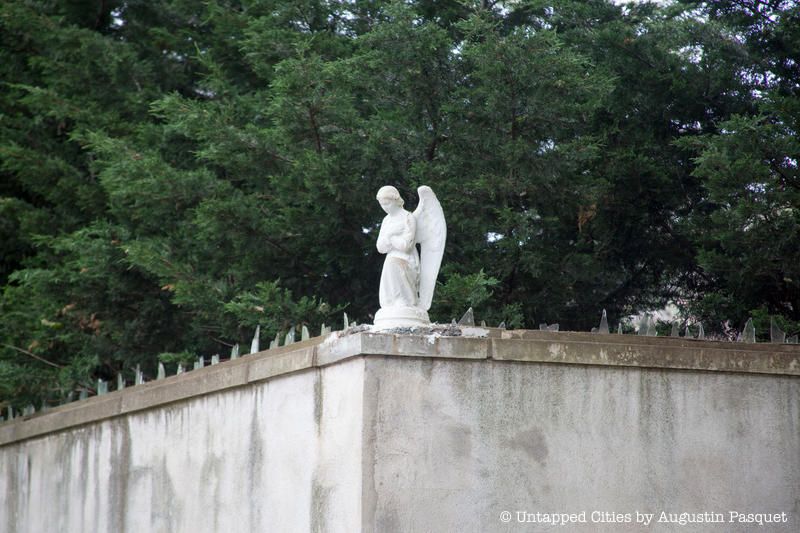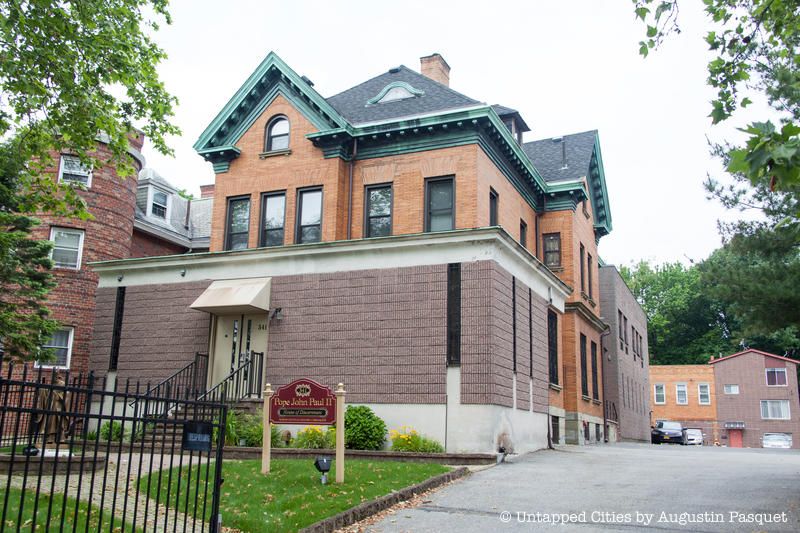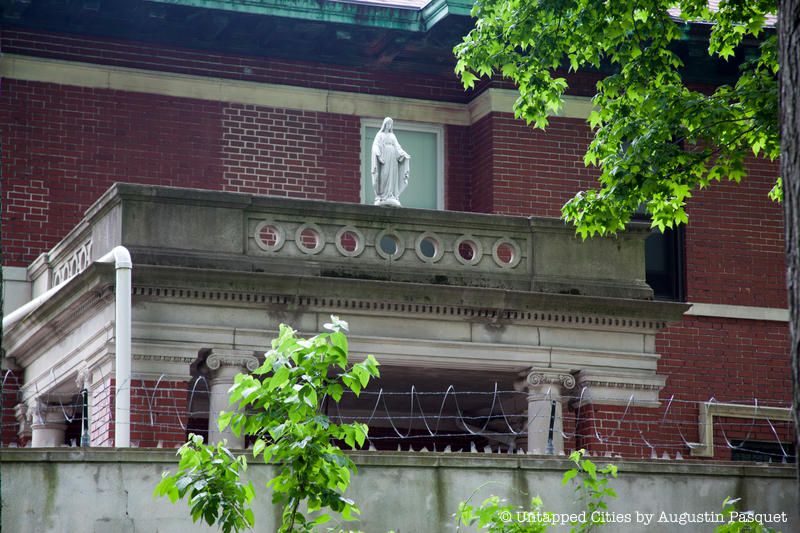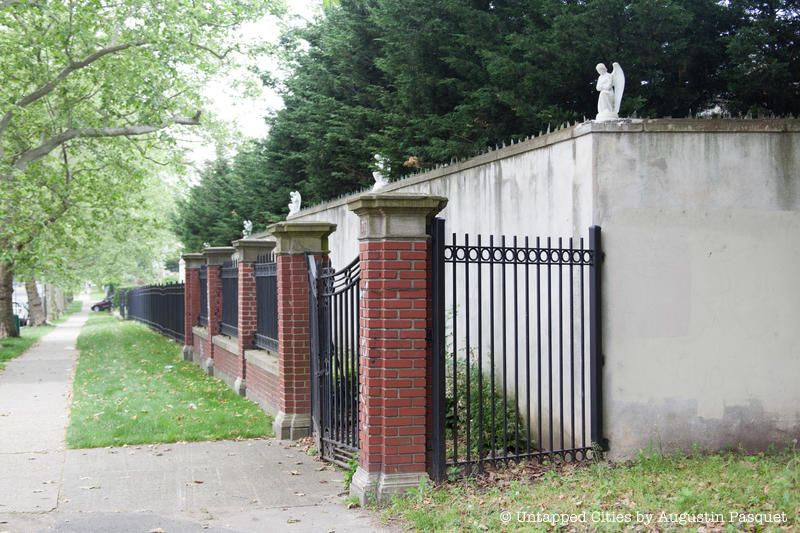

The concrete walls of the Carmelite Monastery between Highland Park and the sprawling cemeteries nearby are not only high and lined with barbed wire, but they’re also additionally protected with shards of broken glass and small angel figurines. This particular monastery is home to the Discalced Carmelite Sisters, an obscure Catholic order whose devotees practice a life of complete isolation. Most will never exit the walls once they enter. They also do not wear shoes or sandals.

This complex was originally built as a Lithuanian community center in 1974 and the Carmelites moved here, near the Ridgewood Reservoir, after 1997, when their previous location in Crown Heights closed. Even then, it was estimated that only somewhere between nine and seventeen nuns lived in the cloister at the corner of St. John’s Place and Bedford Avenue – but nobody knew for sure. The sharp pieces of glass lined the walls then too. Most of the former monastery was demolished and turned into a senior housing complex. The members dispersed across the world, but three went to Buffalo in the hopes of reestablishing the cloister. They passed away before this could happen, but the new location opened sometime after.

Two mansions on the monastery property were originally residences built for the Lithuanian community, constructed before 1974. An original, smaller fence of metal and brick still remains along the street, behind which a foreboding concrete wall rises. Booming music from the Caribbean community barbequing at Highland Park forms a noticeable juxtaposition against the isolation beyond.

When visitors come to the monastery, they can only communicate with the sisters through something known as a “turn,” a rotating wooden cylinder with shelves, by which goods can pass through. The New York Times described the turn as akin to a “secret revolving bookcase in a mystery movie.” The mosaics, church pews, sculptures and other artifacts in the publicly accessible chapel are said to have come from the previous Crown Heights location.


Even among other Carmelite monasteries, the Brooklyn branch is considered an anachronistic holdout of the past. From what little is known of life inside, the sisters adhere to traditions of the order formed centuries again: wearing thick wool habits, spending most of the day in silence when not in prayer, and eschewing most creature comforts. In the mid-1990s, it was reported that they had changed their bedding from straw sack mattresses to thin foam pads due to the difficulty in obtaining straw. They also stopped wearing facial veils during this time. They use very little electricity, with no television, radio, computers or internet connection.
If you visit, don’t be surprised that all the doors are locked. Ring the bell and if someone answers, it is said that they will let you into the chapel.
Next, check out 5 of NYC’s other monasteries.


